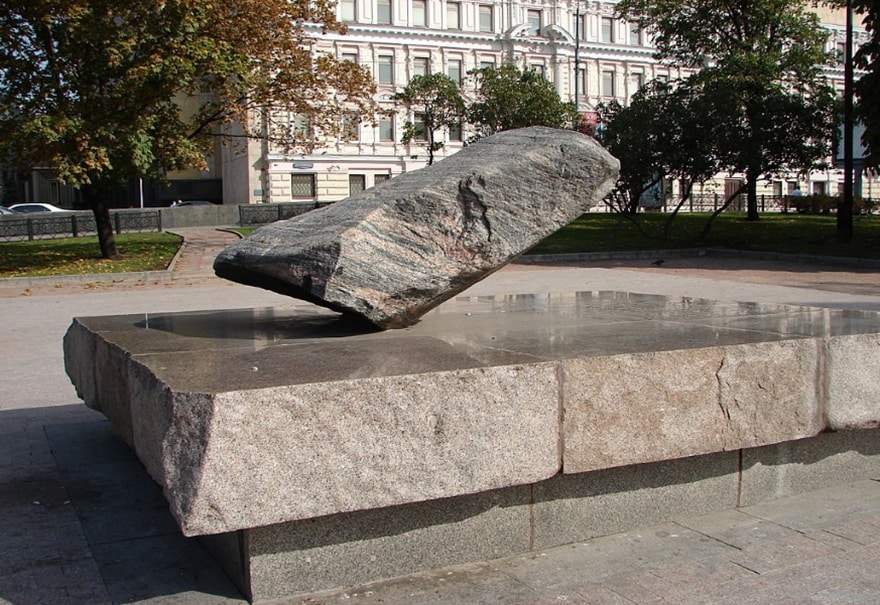Now, I have to say a lot of obvious and well-known things. But there is no way around it – this introduction demands them.
Political prisoners have existed throughout Russian history. In the Tsarist era, they were exiled, sent to penal colonies, or executed. The Soviet regime did the same but called the penal colonies the Gulag, escalating the scale of repression by hundreds, if not thousands, of times. Modern Russia is following the same path. Exile has not yet made a comeback, but everything else is in place – hundreds of political prisoners, and even their deaths. The list of those who have died goes far beyond Sergei Magnitsky and Alexei Navalny. Tragically, it includes many more.

Elvira Vikhareva
Reciting The Names Of Those Currently Imprisoned
Since 2007, an event called "Return of Names" has been held in Russia and abroad to honor the victims of repression. Participants gather at symbolic locations and read the names of those who perished in prison or were executed by the state. In the early years, the event was entirely legal. It was even initiated by Vladimir Lukin, then ombudsman and a founding member of the liberal party Yabloko.
However, over time, the authorities began to ban the event. Its organizer, the Memorial society – now a Nobel laureate – was declared a "foreign agent" and forcibly dissolved.[1] And now, alongside the names of Soviet-era political prisoners, the event also features those of contemporary ones.
This may explain the crackdown. Officials are deeply uncomfortable hearing that their predecessors murdered people. And hearing it in Lubyanka Square, right in front of the FSB headquarters, where the Solovetsky Stone – a monument brought from one of the first Gulag islands – stands, is unbearable. Especially right under the nose of the FSB.
But even more frightening for the authorities are the names of the current regime's victims.
Imagine the impact when, across the country, people recite the names of those currently imprisoned – those labeled as terrorists, extremists, or discreditors of the army, people who oppose Putin and the war.
This is precisely why the authorities are banning the event. In Moscow, for example, the pretext is the ongoing COVID-19 pandemic – a ridiculous excuse at this point. In other places, other justifications are used.
I do not rule out that the event may still slip through the cracks of state control somewhere. But even if it does, it will be treated as illegal – as what Russians call "stolen air," the air we all breathe here.
So, what does the event look like? It is very simple. People stand in line, waiting to approach a meaningful location – a monument to political prisoners, or the Solovetsky Stone (there is one in St. Petersburg as well). When their turn comes, they read a name from a slip of paper. They might also mention the person's occupation, age, or other brief biographical details.
That's it.
Then the next person steps forward with another slip of paper, and the cycle repeats.

The Solovetsky Stone is a monument on Lubyanka Square in Moscow to the victims of political repression. (Source: X)
The Act Of Remembrance Serves As A Unifying Force
Sadly, Russia's history of repression has left behind so many victims that listing them all in a single day is impossible – even from the Stalinist era alone. And there were many other such periods, both before and after.
Due to state pressure, the "Return of Names" is increasingly moving abroad. There, the names are read by those who have fled war and repression – people who narrowly escaped becoming political prisoners themselves or managed to gain their freedom just in time.
This act of remembrance serves as a unifying force – much like the name of Pushkin. For it is not just the heights of the human spirit that connect us, but also its failures. Remembering these victims, even if they are not our direct ancestors, is essential.
This memory can take many forms. The "Return of Names" is also conducted online, offering a way for those barred from city centers to participate. One can visit the website and read a name aloud there.
Unfortunately, Russian censorship recently blocked the website. There is no need to expect a rationale – it is just another whim of the same officials. But we all understand: They are the heirs of those who killed. And we are the heirs of those who were killed. This civil war over memory is ongoing.
But the "Return of Names" is not the only initiative. In Russian cities, plaques from the "Last Address" project have started to appear. These plaques resemble Europe's "Stolpersteine" – memorial stones embedded in the ground – but here, instead of stumbling over them, passersby stop to read them. These plaques are mounted on the walls of buildings from which residents were taken to their deaths – hence the name "Last Address." They are modest metal plates with an empty square where a photograph would be.
To install a plaque, consent from all the building's residents is required. Securing this approval is difficult since many people still support the state. Nevertheless, some plaques are installed.
Then they are unscrewed – sometimes following a report to the authorities, accusing the installers of collaborating with Memorial, now labeled a "foreign agent." Other times, they are removed quietly, at night.
Undeterred, people create cardboard plaques, which are easier to replace. Recently, one plaque was even mounted behind protective glass, making it harder to remove.
This, too, is part of the civil war over memory – an endless struggle to restore and maintain these plaques, carried out by volunteers who receive no reward other than the knowledge that they are preserving the dignity of a nation that is not entirely made up of forgetful descendants of executioners. Far from it.
Putinism's Grip On Power Is Not Eternal
Naturally, the state offers no help in these efforts. Like the "Return of Names," the plaques exist solely thanks to people's will. Yet, the state tries every possible way to obstruct this will.
The longer Putin remains in power, the more Russians are taught that the greatness of the state is paramount, that individual lives are insignificant. "When you cut down a forest, splinters will fly." This saying justifies not only new repressions but also allows the aging rulers – many of whom hail from the Soviet Union, where political prisoners were executed – to come to terms with their own past.
It was in the Soviet-era labor camps of Mordovia that October 30, now "Political Prisoner Day," first emerged as an act of protest. It was not marked by the reading of names, but by deadly hunger strikes – an act of defiance that is, sadly, resurfacing in today's prisons as the only way for inmates to draw attention to their suffering and protect themselves from torture.
And the most important thing: Despite the state's war on memory, our remembrance only grows stronger. They destroy, and we find new ways to preserve memory. This is proof that we still have a chance – that Putinism's grip on power is not eternal. It will collapse, just as the Soviet Union did – a colossus on clay feet. And when it does, we, the people, will remain.
*Elvira Vikhareva is a renowned Russian opposition politician based in Russia. In 2023, she was poisoned with heavy metal salts.
[1] Nobelprize.org/prizes/peace/2022/memorial/facts, accessed October 30, 2024.




.jpg)